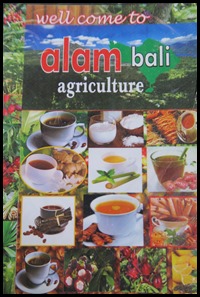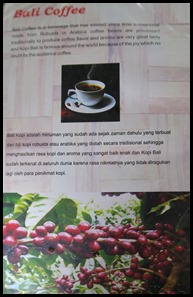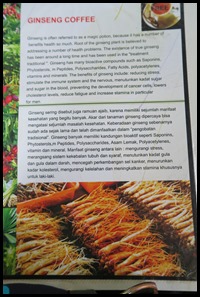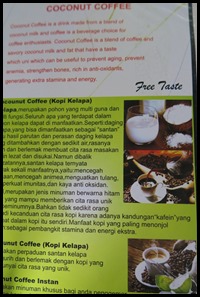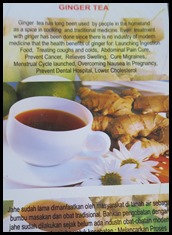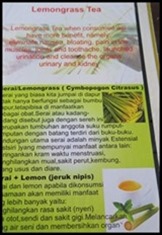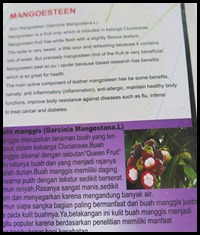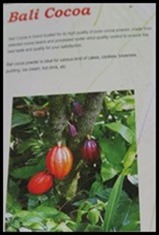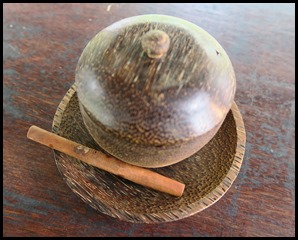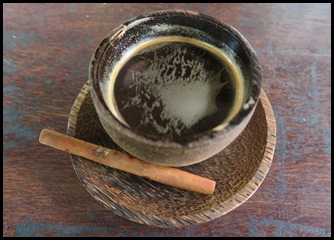Alam Bali Coffee

|
Alam Bali Coffee Plantation
Visit
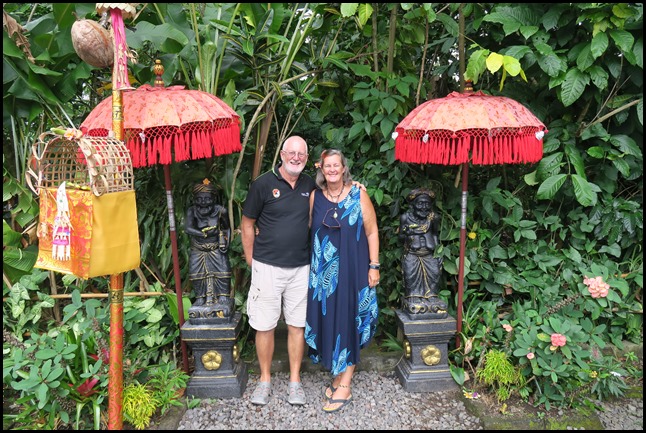 Our driver Ketut took this picture of
us as we arrived at Alam Bali Coffee
Plantation.
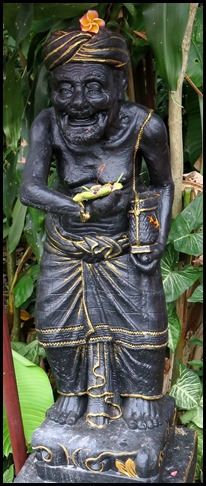 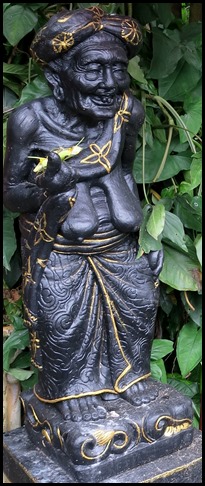 The
‘minders’ an indication of what comes next.........with age.
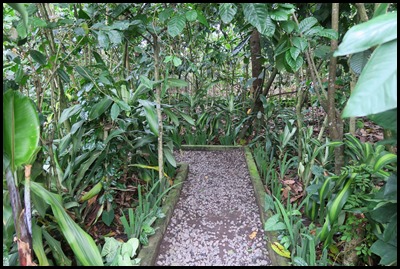 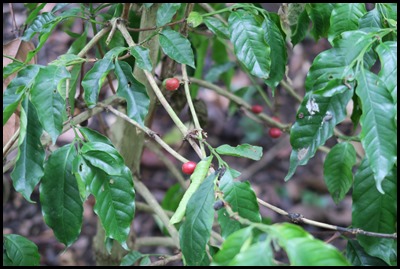 Soon following the
path with our guide we see coffee beans, red and
ready.
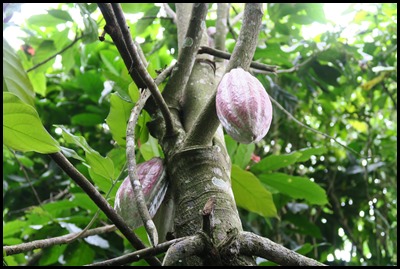 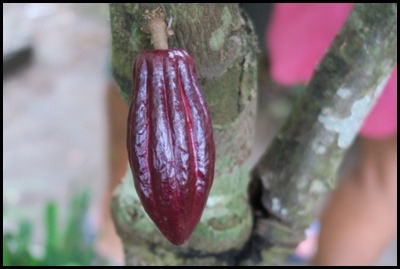 Cocoa pods.
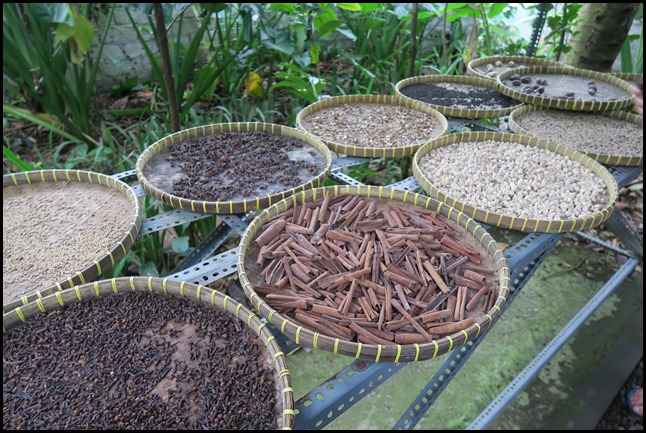 Herbs and
spices of the area.
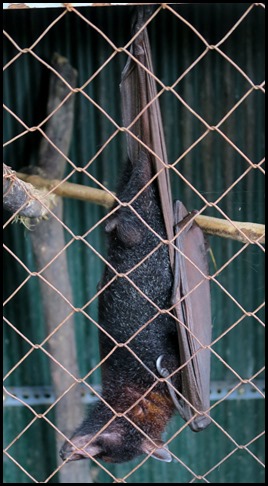  We were introduced to a little boy found on the plantation by a worker, a broken
wing. I had to sneak back to get the ‘batman’
shot.
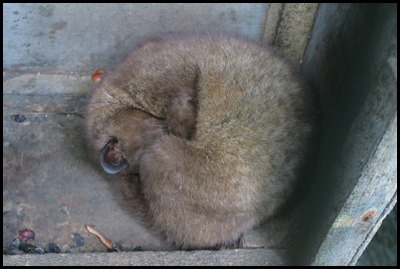 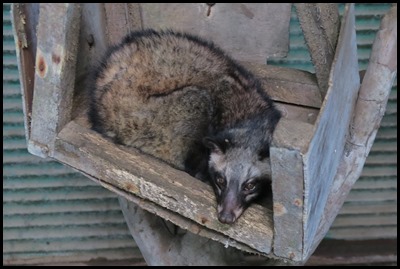 We meet our first civet cats (called
luwak here), as yet unaware of their ‘job’.
Bare, harsh cages......like the bat have they been
rescued ???
Wiki says: A civet is a small, lithe-bodied, mostly nocturnal mammal native to tropical Asia and Africa, especially the tropical forests. The term civet applies to over a dozen different mammal species. Most of the species diversity is found in southeast Asia. 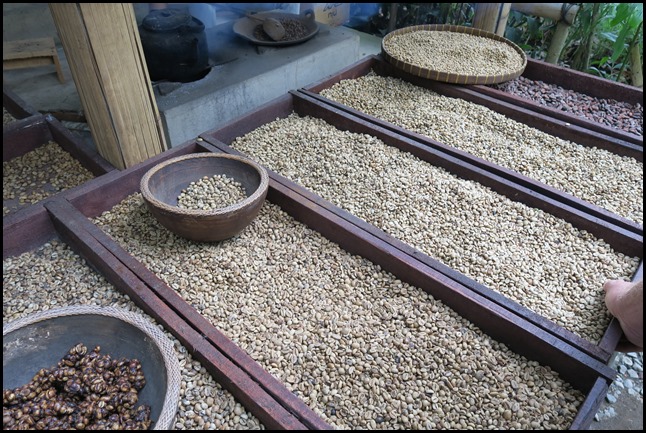 Our guide explained the coffee beans of the area. If a pod is opened and there
are two seeds – normal for roasting. If there is only one it will be sun-dried
for green tea, literally the beans hot water and sipped.
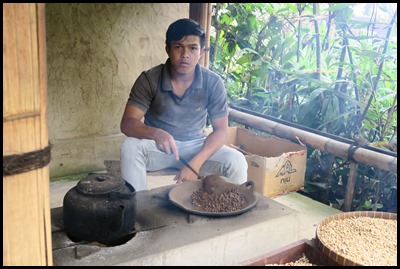 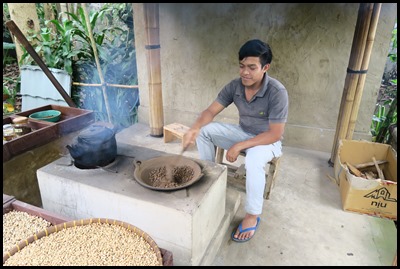 This lad sits and roasts
beans all day every day.
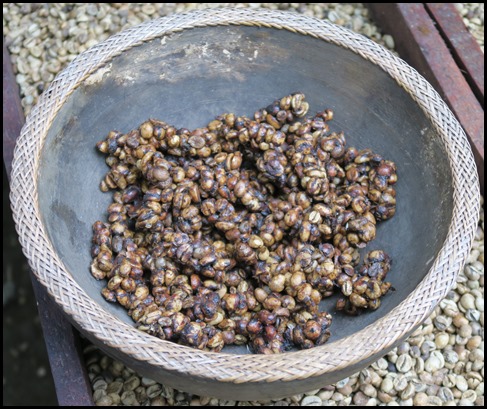 We are introduced to civet poo.
Kopi Luwak is also known as caphe cut chon (fox-dung coffee) in Vietnam and kape alamid in the Philippines. It is coffee that is prepared using coffee cherries that have been eaten and partially
digested by the Asian palm civet, then harvested from its faecal
matter. The civets digest the
flesh of the coffee cherries but pass the beans inside, leaving their stomach
enzymes to go to work on the beans, which adds to the coffee's prized aroma and
flavour. 0.5 kg (1 lb) can cost up
to $600 in some parts of the world and about $100 a cup in others.
A 2012 investigation by The Guardian newspaper found Indonesian civets held separately in cramped cages. The animals were force-fed a debilitating diet of coffee cherries in conditions described by the Traffic charity as "awful" and "horrific". There is a campaign under way to encourage "ethical civet coffee". Time to try it for ourselves.
We were given a free tasting of the usual suspects. Bear was fond of the lemongrass and I liked mangoesteen.
Time for the gritty, tart, rough and bitter kopi luwak.
It all comes back to us, that very funny bit in the film The Bucket List as Jack fires up his coffee machine and Morgan hands over the article........ [Carter hands Edward an article about Kopi Luwak, Edward's favourite coffee] Carter Chambers: Read it. Edward Cole: [reading] Kopi Luwak is the world's most expensive coffee. Though for some, it falls under the category of "too good to be true." In the Sumatran village, where the beans are grown, lives a breed of wild tree cat. These cats eat the beans, digest them and then... defecate. [pauses] Edward Cole: The villagers then collect and process the stools. It is the combination of the beans and the gastric juices of the tree cat that give Kopi Luwac... [Carter starts laughing] Edward Cole: ...its unique flavour... and aroma. You're shitting me! Carter Chambers: [laughing] Cats beat me to it! [Carter and Edward both laugh hysterically] Later we would find out that Breeding
equals caged animals and wild is wild. We clearly drank
caged........
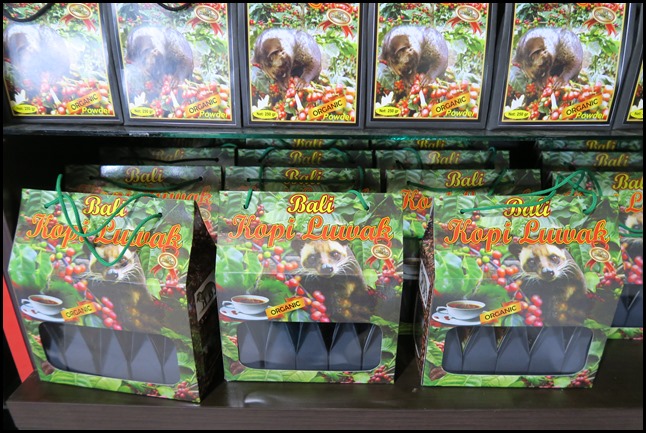 Nerves of steel are necessary when
looking at the prices in the shop.
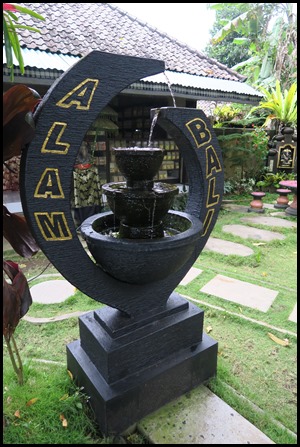 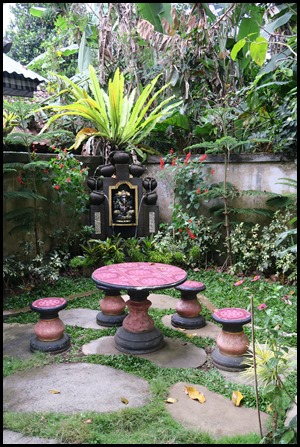 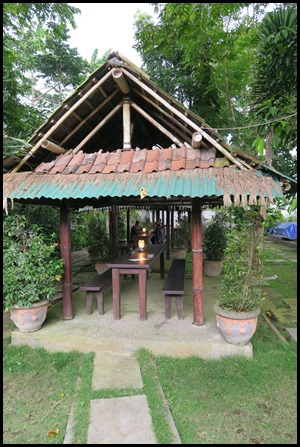 Time to leave this lovely garden and head back to the van, first the car park
flowers.
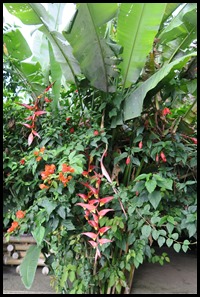 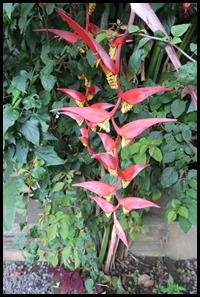 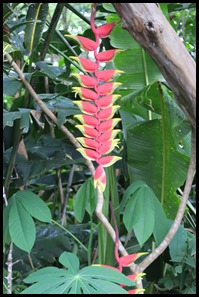 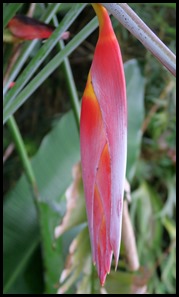 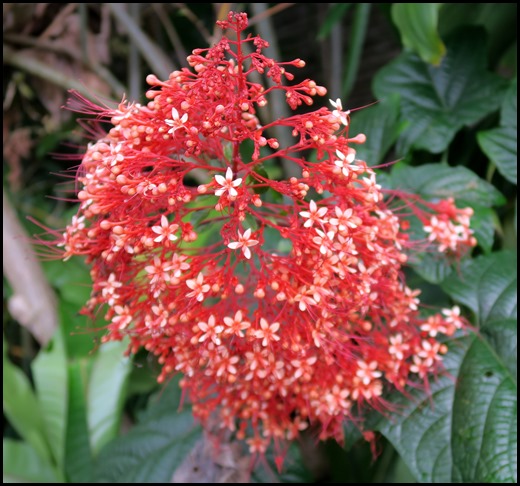 ALL IN ALL MAY NEVER BECOME A
FAN.........
INTERESTING BUT STILL TASTES LIKE S - -
T |
